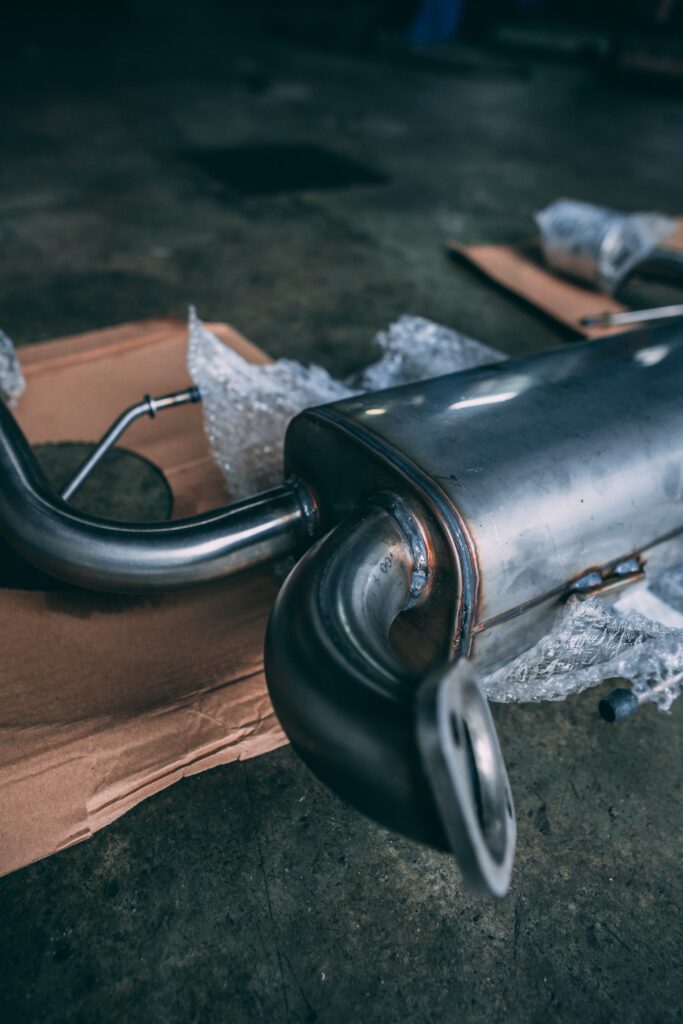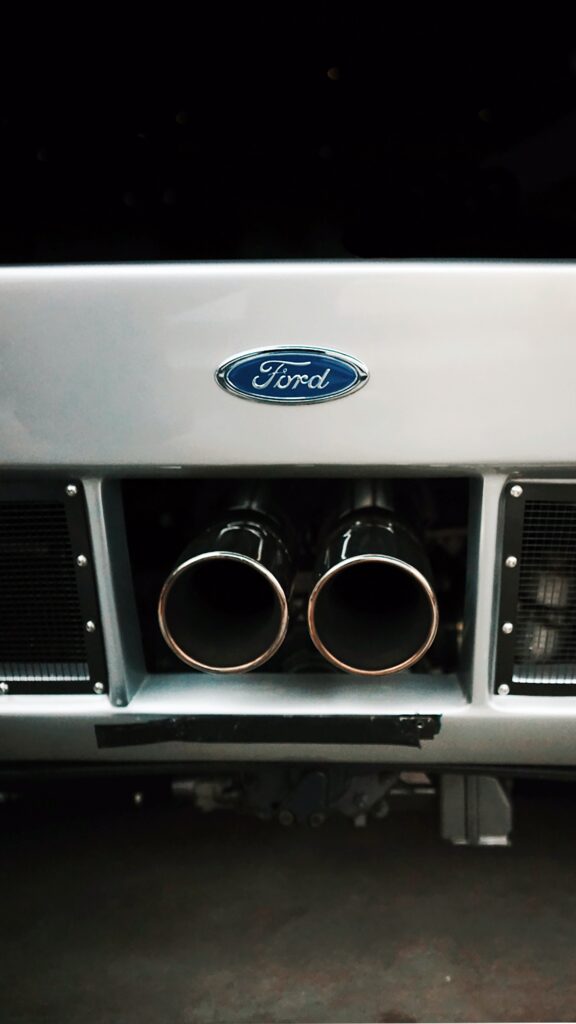If you’ve ever wondered why your car’s exhaust system seems to make more noise when the engine is cold, you’re not alone. Many car owners have experienced this phenomenon and wondered if it’s something to be concerned about. In this article, we’ll explore why your exhaust might make noise when the car is cold and whether it’s something you need to worry about. So, let’s put your mind at ease and uncover the truth behind this common occurrence.

Understanding Car Exhaust Noises and Cold Starts
Importance of the car’s exhaust system
The exhaust system plays a crucial role in a car’s overall performance and functionality. It is responsible for removing harmful gases generated by the engine, reducing noise produced during operation, and improving fuel efficiency. Proper maintenance and understanding of the exhaust system are important for the longevity of the vehicle and ensuring a smooth driving experience.
Effects of cold starts on cars
cold starts refer to when a car is started after being parked for an extended period, typically overnight or during colder weather conditions. During this time, the engine and its components are at a lower temperature than usual, which can affect various aspects of the vehicle’s performance. Cold starts can lead to increased wear and tear on the engine, reduced fuel efficiency, and the production of distinct noises from the exhaust system.
Common noises from the exhaust during cold start
It is not uncommon for your car’s exhaust to make some noise when the engine is cold. These noises can vary in intensity and sound, but it is important to differentiate between normal and unusual sounds. Here are some common noises you may experience:
Normal Noises from Exhaust When Car is Cold
Low rumbling or gurgling during startup
When you start your car on a cold morning, you may notice a low rumbling or gurgling sound coming from the exhaust. This is typically caused by condensation inside the exhaust system, which occurs due to the temperature difference between the cold engine and the warm exhaust gases. Once the system heats up, the noise should subside.
Slight ticking noise from the exhaust
Another common noise during cold starts is a slight ticking sound originating from the exhaust system. This ticking noise is often caused by the thermal expansion of the exhaust components. As the system heats up, the metal expands and may produce this audible ticking noise. It should diminish as the engine warms up and the exhaust reaches operating temperature.
The sound of the exhaust system expanding
During a cold start, you might also hear a sound resembling the exhaust system expanding. This is due to the different parts of the exhaust system, especially the pipes, heating up and expanding as the engine generates more heat. The sound should fade away as the components reach their normal operating temperature.
Causes of Normal Exhaust Noise During Cold Starts
Thermal expansion and contraction of exhaust components
One of the primary causes of the normal noises from the exhaust during cold starts is thermal expansion and contraction. As mentioned earlier, when the engine is started from a cold state, the exhaust system goes through different temperature changes, causing the metal components to expand or contract. These temperature-related fluctuations result in the noises you hear during this time.
Increased engine load during cold starts
Cold starts often require the engine to work harder to achieve optimal operating conditions. This increased load and effort put on the engine can contribute to changes in exhaust noise. The engine may produce different sounds as it warms up and the fuel mixture and air intake adjust to reach the ideal combustion temperature.
The role of the catalytic converter
The catalytic converter is an essential component of the exhaust system that helps reduce harmful emissions. During a cold start, the catalytic converter may take some time to reach its effective operating temperature. Until then, it may not function optimally, resulting in slightly different exhaust noises. Once the catalytic converter warms up, the noises should return to normal.
Unusual Noises from Exhaust When Car is Cold
Loud bangs or explosions
If you hear loud bangs or explosions coming from your car’s exhaust during a cold start, it is essential to address this issue promptly. Unusual sounds of this nature could indicate problems such as a faulty ignition system, a damaged muffler, or even engine misfires. These issues can affect the overall performance of your vehicle and should be examined by a professional mechanic.
High-pitched squealing or whistling
A high-pitched squealing or whistling noise during a cold start can be a cause for concern. This could be indicative of a failing belt, such as the serpentine belt or a worn-out belt tensioner. If left unattended, these issues can lead to further damage or even a breakdown. It is recommended to have your vehicle inspected by an experienced mechanic to diagnose and address the source of this noise.
Constant loud ticking or clicking
While some ticking noise during a cold start is considered normal, a constant, loud ticking or clicking sound could signify an underlying issue. This persistent noise might indicate a problem with the engine’s valves, such as worn-out valve lifters or a faulty rocker arm. Ignoring this noise can lead to severe engine damage and should be investigated by a professional mechanic immediately.

Potential Issues Indicated by Unusual Exhaust Noises
Exhaust leaks and holes
Unusual exhaust noises, such as loud bangs or explosions, can often indicate exhaust leaks or holes in the system. these leaks can be caused by corrosion, worn-out gaskets, or damage to the exhaust pipes. In addition to the noise, exhaust leaks can also result in decreased fuel efficiency, increased emissions, and potential safety hazards. It is crucial to have these issues addressed promptly to avoid further damage and ensure the proper functioning of your vehicle.
Trouble with the catalytic converter
If you notice unusual noises accompanied by a decrease in performance or a strong smell of rotten eggs (sulfur), it may be an indication of catalytic converter failure. A failing catalytic converter can result in a variety of noises, including rattling or hissing sounds. This issue not only affects your car’s emissions but can also lead to reduced engine power and increased fuel consumption. A certified mechanic should inspect and replace a faulty catalytic converter to restore the efficiency of your vehicle.
Damaged or loose exhaust components
Unusual noises from the exhaust system could be a sign of damaged or loose components. Vibrations, impacts, or exposure to harsh conditions can cause exhaust pipes, brackets, or hangers to become loose or develop cracks. Additionally, internal components, such as mufflers or resonators, can corrode or deteriorate over time. These issues can lead to excessive noise, vibrations, and compromised safety. Timely repair or replacement of damaged or loose exhaust components is crucial to maintain the integrity and functionality of your vehicle.
Testing for Suspected Exhaust Issues
Visual inspection for leaks or damage
If you suspect exhaust issues, a visual inspection is an excellent starting point. Carefully examine the exhaust system for any visible signs of damage, such as holes, cracks, or loose components. Look for rust or corrosion, as this can indicate potential weak points. If you notice any abnormalities, it is advisable to consult a professional mechanic for further assessment and necessary repairs.
Listening for changes in noise level or duration
Pay attention to any changes in the exhaust noises during cold starts. Note if the noises are becoming more prominent, lasting longer, or if new sounds have emerged. Any sudden or significant changes can indicate underlying problems. While it is essential to educate yourself about normal and abnormal sounds, it is always recommended to consult a mechanic if you have any doubts or concerns.
Professional diagnostic tests
If you are unable to identify the source or nature of the unusual exhaust noises, it is best to seek professional assistance. Specialized diagnostic tests, such as exhaust system pressure tests or computerized engine diagnostics, can provide accurate information about the condition of your vehicle. These tests can pinpoint specific issues and guide the mechanic in determining the most appropriate course of action.

Possible Fixes for Unusual Exhaust Noises
Repairing or replacing leaking exhaust components
In the case of exhaust leaks or holes, repairing or replacing the affected components is necessary. Depending on the extent of the damage, a mechanic may need to patch small holes, replace corroded pipes or gaskets, or even install an entirely new exhaust system. Prompt attention to these issues can prevent further damage and restore the efficiency and functionality of your car’s exhaust system.
Fixing or replacing a faulty catalytic converter
If the catalytic converter is deemed faulty, it must be fixed or replaced to ensure proper emissions control. A certified mechanic can determine the extent of the issue and recommend the appropriate course of action. Ignoring catalytic converter problems can lead to increased emissions, reduced fuel efficiency, and potentially even engine failure.
Tightening loose exhaust parts
Loose exhaust components, such as brackets, hangers, or pipes, should be tightened or replaced as necessary. It is crucial to secure these parts to prevent excessive vibrations, rubbing against other components, or potential detachment. A mechanic can assess the situation and make the necessary adjustments to ensure the exhaust system is secure and functioning properly.
Final Thoughts on Car Exhaust Noises
Recognizing the difference between normal and unusual exhaust noises during cold starts is essential for every car owner. It is normal to experience some sound variations as the engine and exhaust system warm up or cool down. However, it is crucial not to dismiss or ignore unusual and persistent noises, as they can indicate underlying problems that may require professional attention.
Timely intervention and regular maintenance are key to maintaining the health and performance of your vehicle. As responsible car owners, it is our duty to address any potential issues promptly to ensure safe driving and prolong the lifespan of our cars. Regular inspections, proper tune-ups, and professional assistance when needed will go a long way in keeping your exhaust system functioning optimally and your car running smoothly for years to come.
